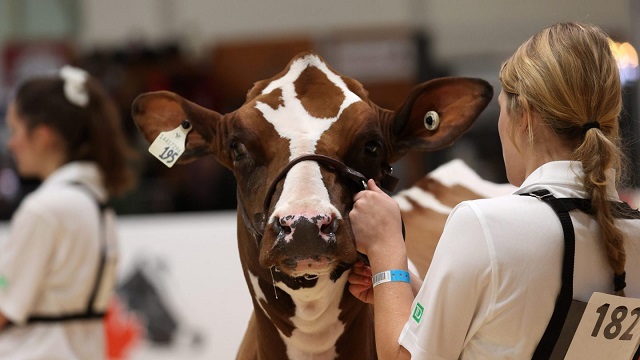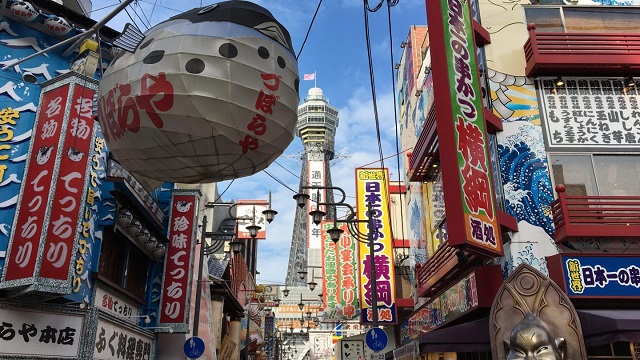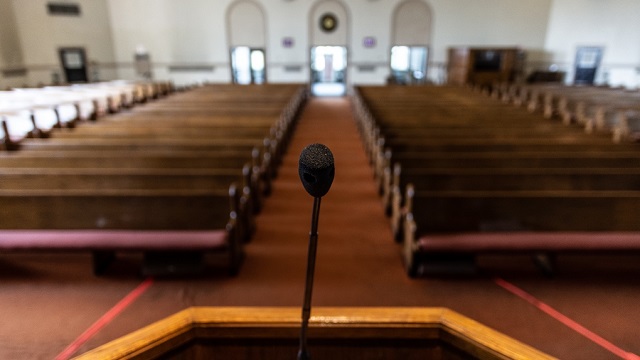Agriculture
How would you like it if someone came on to your land to build a pipeline?

How would you like it if someone came on to your land to build a pipeline?
This is one of the questions you’ve no doubt heard in the media lately. A common question from protestors and their supporters. It’s been posed to media reporters asking protestors why they’re trying to shut down Canada. It’s been used as a headline for editorials in big newspapers. If you live in a city or even a small community you’ve never had to deal with a company that wants to build a pipeline on your property. That seems to make this question a good one.
However I come from a farming community and it occurred to me that I might just know some people who’ve had experience with pipeline companies. So I decided to message a friend of mine. He used to be a pretty good hockey player when we were growing up. He played with a temper. Years may have passed but I know he’s definitely no push over. Devon is not the kind of guy who’d let anyone walk all over him. Even a big pipeline company.
Turns out Devon actually has lots of experience with pipelines. When he moved onto his acreage 20 years ago there were already 5 lines running under it. 2 more lines have been buried since. The last one came through just last year. If you look at the first map you can see a place called Herschel. Herschel is Devon’s territory. The map shows where Enbridge Line 3 Replacement cut through his property just last year. The second map shows just how many lines are following that same route.


When I discovered a new line had been put down in the last year I thought he’d have some fresh memories of how that affected his life. It was my chance to ask someone who actually knows “How would you like it if someone came on your land to build a pipeline?”
Me: “What happens during construction?”
Devon: “The only inconvenience during pipeline construction for us has been delays on the roads. They haven’t affected our home lives at all.”
Me: “What about animals? How long before things get back to normal in their world?”
Devon: “Wildlife doesn’t seem bothered at all.” Then he asked me “What’s normal?” – and he sent me a video taken right in his yard last summer.
Me: “OK. The animals appear not to mind. Does it affect the quality of your land?”
Devon: “We don’t farm the affected land, but Enbridge recovers the top soil and replants whatever vegetation you want. In our case, grass.”
Me: “What would happen to you if there was a spill on your property?”
Devon: “We have never had a spill, or know of anyone that has. They have given us contact information, and instruction if we ever encounter what we feel may be a spill. Several times a week they fly (over) the pipeline inspecting it.
Me: “Are you fairly compensated?”
Devon: “We have been treated very fairly by Enbridge.”
I have to admit I was hoping for even a tiny bit of drama in this back and forth conversation. Just like you would with any conversation. So I put my reporter skills to work and decided to finish by asking an “emotional” question. Certainly there has to be even a little bit of anxiety over having a pipeline carrying flammable material close to your home… right under your own property. Everyone knows there have been accidents. So the natural question is..
Me: “Wouldn’t you rather there were no pipelines under your land and close to your home?
Devon: “I was actually disappointed when they told us the line 6 replacement was being routed around our acreage because they felt it would be too close to the house. I actually have never thought about whether I would rather live where there’s no pipelines. They’ve never been an issue.”
If I had to conclude this and I do, I would say that it would seem my friend Devon is one of the vast majority of people who pay some type of price for the conveniences of modern society. In his case it’s doesn’t seem the price is very high. Maybe he thinks the compensation is actually worth it. No. He’s never experienced an accident. He doesn’t know of anyone who even knows anyone who has. Like the rest of us, he only knows they’ve happened because he pays attention to the news. The only real difference is Devon actually has a half dozen pipelines running across his property. As you can see from the second map above, the energy running through them keeps people in the Eastern United States and Eastern Canada, warm in their homes and mobile in their vehicles.
Here’s what pipelines look like for the vast majority of those who have to live with them. In Devon’s case, 20 years of living with pipelines and zero problems. He’s not going to claim nothing could ever happen. All he can say is that nothing has ever happened.
Read more on Todayville.com
Agriculture
Degrowth: How to Make the World Poorer, Polluted and Miserable

From StosselTV
Activists have a new goal: “DEgrowth.”
They say “growth is killing us.” They couldn’t be MORE wrong.
“Growth is not killing us. It’s saving us!” says author Johan Norberg. He explains why growth is essential to human progress, especially for poor people. “In poor countries, if you manage to grow by 4% annually over 20 years,” he points out, “that reduces poverty in that country on average by 80%.
But DEgrowth activists insist that growth means “climate chaos.” They say a smaller economy would be “sweeter.” They say “We must urgently dismantle capitalism!” It’s destructive nonsense. This video explains why.
————
To get our new weekly video from Stossel TV, sign up here: https://www.johnstossel.com/#subscribe
————
After 40+ years of reporting, I now understand the importance of limited government and personal freedom.
——————————————
Libertarian journalist John Stossel created Stossel TV to explain liberty and free markets to young people.
Prior to Stossel TV he hosted a show on Fox Business and co-anchored ABC’s primetime newsmagazine show, 20/20. Stossel’s economic programs have been adapted into teaching kits by a non-profit organization, “Stossel in the Classroom.” High school teachers in American public schools now use the videos to help educate their students on economics and economic freedom. They are seen by more than 12 million students every year.
Stossel has received 19 Emmy Awards and has been honored five times for excellence in consumer reporting by the National Press Club.
Other honors include the George Polk Award for Outstanding Local Reporting and the George Foster Peabody Award.
Agriculture
How oil and gas support food security in Canada and around the world

General view of the ‘TD Canadian 4-H Dairy Classic Showmanship’ within the 101st edition of Royal Agricultural Winter Fair at Exhibition Place in Toronto, Ontario, on November 6, 2023. The Royal is the largest combined indoor agriculture fair and international equestrian competition in the world. Getty Images photo
From the Canadian Energy Centre
‘Agriculture requires fuel, and it requires lubricants. It requires heat and electricity. Modern agriculture can’t be done without energy’
Agriculture and oil and gas are two of Canada’s biggest businesses – and they are closely linked, industry leaders say.
From nitrogen-based fertilizer to heating and equipment fuels, oil and gas are the backbone of Canada’s farms, providing food security for Canadians and exports to nearly 200 countries around the world.
“Canada is a country that is rich in natural resources, and we are among the best, I would even characterize as the best, in terms of the production of sustainable energy and food, not only for Canadians but for the rest of the world,” said Don Smith, chief operating officer of the United Farmers of Alberta Co-operative.
“The two are very closely linked together… Agriculture requires fuel, and it requires lubricants. It requires heat and electricity. Modern agriculture can’t be done without energy, and it is a significant portion of operating expenses on a farm.”
The need for stable food sources is critical to a global economy whose population is set to reach 9.7 billion people by 2050.
The main pillars of food security are availability and affordability, said Keith Currie, president of the Canadian Federation of Agriculture (CFA).
“In Canada, availability is not so much an issue. We are a very productive country when it comes to agriculture products and food products. But food affordability has become an issue for a number of people,” said Currie, who is also on the advisory council for the advocacy group Energy for a Secure Future.
The average price of food bought in stores increased by nearly 25 per cent over the last five years, according to Statistics Canada.
Restricting access to oil and gas, or policies like carbon taxes that increase the cost for farmers to use these fuels, risk increasing food costs even more for Canadians and making Canadian food exports less attractive to global customers, CFA says.
“Canada is an exporting nation when it comes to food. In order for us to be competitive we not only have to have the right trade deals in place, but we have to be competitive price wise too,” Currie said.

Under an incredible Saskatchewan sky, a farmer walks toward his air seeder to begin the process of planting this year’s crop. Getty Images photo
Canada is the fifth-largest exporter of agri-food and seafood in the world, exporting approximately $93 billion of products in 2022, according to Agriculture Canada.
Meanwhile, Canadians spent nearly $190 billion on food, beverage, tobacco and cannabis products in 2022, representing the third-largest household expenditure category after transportation and shelter.
Currie said there are opportunities for renewable energy to help supplement oil and gas in agriculture, particularly in biofuels.
“But we’re not at a point from a production standpoint or an overall infrastructure standpoint where it’s a go-to right away,” he said.
“We need the infrastructure and we need probably a lot of incentives before we can even think about moving away from the oil and gas sector as a supplier of energy right now.”
Worldwide demand for oil and gas in the agriculture sector continues to grow, according to CEC Research.
Driven by Africa and Latin America, global oil use in agriculture increased to 118 million tonnes of oil equivalent (Mtoe) in 2022, up from 110 million tonnes in 1990.
Demand for natural gas also increased — from 7.5 Mtoe in 1990 to 11 Mtoe in 2022.
Sylvain Charlebois, senior director, in the Agri-Food Analytics Lab at Dalhousie University, said food security depends on three pillars – access, safety, and affordability.
“Countries are food secure on different levels. Canada’s situation I think is envious to be honest. I think we’re doing very well compared to other countries, especially when it comes to safety and access,” said Charlebois.
“If you have a food insecure population, civil unrest is more likely, tensions, and political instability in different regions become more of a possibility.”
As a country, access to affordable energy is key as well, he said.
“The food industry highly depends on energy sources and of course food is energy. More and more we’re seeing a convergence of the two worlds – food and energy… It forces the food sector to play a much larger role in the energy agenda of a country like Canada.”
-

 Housing1 day ago
Housing1 day agoTrudeau admits immigration too much for Canada to ‘absorb’ but keeps target at record high
-

 Censorship Industrial Complex2 days ago
Censorship Industrial Complex2 days agoTrudeau’s new online censorship law – Problems with Bill C-63 / the Online Arms Law
-

 conflict2 days ago
conflict2 days agoWestern leadership’s detachment from reality is causing terror and death across the globe
-

 Business1 day ago
Business1 day agoDecarbonization deal opens new chapter in Alberta-Japan relationship
-

 Energy2 days ago
Energy2 days agoNew documentary exposing climate alarmism is the latest victim of Big Tech censorship
-

 Censorship Industrial Complex2 days ago
Censorship Industrial Complex2 days agoNPR senior editor admits extreme bias in Russia collusion, Hunter Biden laptop, COVID coverage
-

 Censorship Industrial Complex2 days ago
Censorship Industrial Complex2 days ago“Minority Report”: The Sequel. A warning to the Canadian Church
-

 espionage2 days ago
espionage2 days agoCanada’s security agency confirms Chinese agents worked directly to elect MPs











